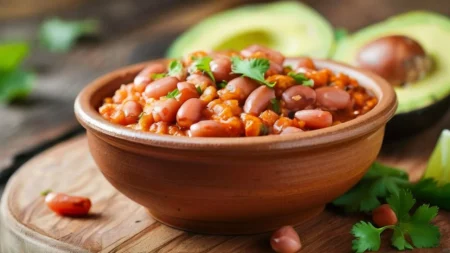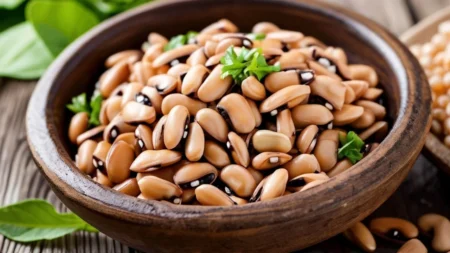As a vegetarian, you may face unique challenges when it comes to managing your weight. However, with the right strategies and mindset, you can achieve and maintain a healthy weight while enjoying the many benefits of a plant-based diet. This comprehensive guide will provide you with the tools and knowledge you need to embark on a successful weight management journey as a vegetarian.
Adopting a vegetarian lifestyle offers numerous advantages, including reduced risk of chronic diseases, improved digestion, and a more sustainable environmental footprint. By understanding the intricacies of vegetarian weight management, you can seamlessly integrate these benefits into your weight loss or maintenance goals, ensuring a healthy weight for vegetarians and an overall improved quality of life.
Whether you’re a seasoned vegetarian or are considering transitioning to a plant-based diet weight loss plan, this guide will equip you with the strategies and insights to navigate the unique aspects of vegetarian weight management. From balancing macronutrients to overcoming common challenges, you’ll find the information you need to achieve your health and wellness objectives.
Key Takeaways
- Vegetarian diets offer numerous health benefits, including reduced risk of chronic diseases and improved digestion.
- Effective weight management for vegetarians involves balancing macronutrients, incorporating nutrient-dense foods, and adopting a holistic approach to exercise.
- Overcoming common challenges, such as cravings and limited food options, is crucial for maintaining a healthy weight on a vegetarian diet.
- Meal planning and preparation are essential for ensuring a balanced and satisfying vegetarian diet that supports weight management goals.
- Paying attention to specific nutrient needs, such as protein sources, can help vegetarians meet their nutritional requirements while managing their weight.
Understanding Vegetarian Diets
Vegetarian diets come in a variety of forms, each with its own unique characteristics and benefits. By understanding the different types of vegetarian diets, you can make an informed decision about the approach that best suits your individual needs and preferences.
Types of Vegetarian Diets
The most common types of vegetarian diets include:
- Lacto-ovo vegetarianism: This diet excludes meat, poultry, and fish, but allows the consumption of dairy products and eggs.
- Lacto-vegetarianism: This diet excludes meat, poultry, fish, and eggs, but allows the consumption of dairy products.
- Veganism: This diet excludes all animal-derived products, including meat, poultry, fish, dairy, and eggs.
Benefits of a Plant-Based Diet
Following a plant-based diet, such as a vegetarian or vegan diet, can offer numerous benefits of vegetarian diet and advantages of plant-based eating, including:
- Reduced risk of chronic diseases: Plant-based diets have been associated with a lower risk of conditions like heart disease, type 2 diabetes, and certain types of cancer.
- Improved digestion: The high fiber content of a plant-based diet can promote better digestion and gut health.
- Increased energy levels: Vegetarian diets are often rich in complex carbohydrates, which can provide sustained energy throughout the day.
- Environmental sustainability: Types of vegetarian diets that focus on plant-based foods tend to have a lower environmental impact compared to diets heavy in animal products.
By understanding the types of vegetarian diets and the benefits of a vegetarian diet, you can make an informed decision about the approach that best aligns with your personal health goals and lifestyle preferences.
Strategies for Weight Management
Achieving and maintaining a healthy weight as a vegetarian or vegan requires a multifaceted approach. Two key strategies to focus on are portion control and macronutrient balance.
Portion Control and Mindful Eating
Portion control is essential for vegetarian weight loss tips. Overeating, even of plant-based foods, can lead to weight gain. Practice mindful eating by tuning in to your hunger cues, savoring each bite, and stopping when you feel satisfied, not full. Using smaller plates and eating slowly can help you become more aware of your portion control for vegetarians.
Balancing Macronutrients
Ensuring a proper balance of macronutrient balance plant-based diet is crucial for sustainable weight management. Aim for a balance of complex carbohydrates, high-quality proteins, and healthy fats. This approach helps maintain stable blood sugar levels, promotes satiety, and supports overall nutrient intake.
| Macronutrient | Recommended Intake Range | Best Vegetarian Sources |
|---|---|---|
| Carbohydrates | 45-65% of total calories | Whole grains, fruits, vegetables, legumes |
| Protein | 10-35% of total calories | Legumes, nuts, seeds, soy products, dairy (for lacto-ovo vegetarians) |
| Fats | 20-35% of total calories | Avocados, nuts, seeds, olive oil, coconut oil |
By implementing these vegetarian weight loss tips, portion control for vegetarians, and a focus on macronutrient balance plant-based diet, vegetarians can create a healthy, sustainable plan that supports their overall well-being and weight management goals.
Overcoming Challenges
As a vegetarian on a weight management journey, you may face unique challenges that require creative solutions. One of the primary obstacles is navigating limited food options and ensuring you maintain a balanced, nutrient-dense diet. However, with effective vegetarian meal planning and meal prep techniques, you can overcome these hurdles and achieve your goals.
Building well-rounded, vegetarian meals starts with understanding how to balance your macronutrients and incorporate a variety of plant-based proteins, complex carbohydrates, and healthy fats. This not only supports your weight management efforts but also ensures you’re meeting your body’s essential nutrient requirements.
Meal Planning and Preparation
Successful vegetarian meal planning involves creating a weekly or monthly menu that incorporates a diverse range of vegetables, fruits, legumes, whole grains, and other nutrient-dense ingredients. Meal prepping, such as batch cooking or assembling ready-to-go salads and snacks, can make it easier to stick to your plan and avoid temptation when hunger strikes.
Additionally, learning to navigate social situations and dining out as a vegetarian can be a valuable skill. Research restaurant menus ahead of time, inquire about customization options, and be prepared to suggest vegetarian-friendly establishments when planning group gatherings. With a little vegetarian meal prep and strategic planning, you can confidently maintain your plant-based lifestyle while achieving your weight management goals.
| Common Challenges of Vegetarian Weight Loss | Practical Solutions |
|---|---|
| Cravings for non-vegetarian foods | Explore flavorful, satisfying vegetarian alternatives that mimic the textures and flavors you crave. |
| Limited food options in social settings | Research restaurant menus, communicate your dietary needs, and suggest vegetarian-friendly establishments. |
| Difficulty with meal planning and preparation | Develop a weekly or monthly meal plan, practice vegetarian meal prep techniques, and stock your kitchen with nutrient-dense ingredients. |
| Achieving a balanced macronutrient intake | Focus on incorporating a variety of plant-based proteins, complex carbohydrates, and healthy fats into your diet. |
Nutrient Considerations
As a vegetarian, it’s crucial to pay close attention to your nutrient intake to ensure you meet your body’s requirements for optimal health and weight management. One key area of focus is vegetarian protein sources. While a plant-based diet can provide ample protein, it’s important to incorporate a variety of protein-rich foods to meet your nutrient needs for vegetarians.
Legumes, such as beans, lentils, and chickpeas, are excellent vegetarian protein sources that also provide fiber, complex carbohydrates, and a range of essential vitamins and minerals. Nuts and seeds, like almonds, walnuts, and chia seeds, are another valuable source of plant-based protein, healthy fats, and important micronutrients for weight management.
Soy-based products, including tofu, tempeh, and edamame, are also rich in vegetarian protein and offer a variety of beneficial nutrients. Incorporating these versatile ingredients into your meals can help you meet your daily protein requirements while supporting your weight management goals.
Beyond protein, it’s crucial for vegetarians to focus on obtaining sufficient amounts of other essential micronutrients for weight management, such as iron, zinc, calcium, and vitamin B12. These nutrients play a vital role in supporting overall health, energy levels, and the proper functioning of the body’s systems.
By understanding your unique nutrient needs for vegetarians and making intentional choices to incorporate a diverse array of plant-based protein sources and micronutrient-rich foods, you can ensure your vegetarian diet supports your weight management goals and overall well-being.
Exercise and Physical Activity
Achieving your weight management goals as a vegetarian requires a well-rounded approach that encompasses both a balanced diet and regular physical activity. While a plant-based diet can provide numerous health benefits, incorporating exercise into your lifestyle is essential for optimizing your metabolism, building muscle, and improving overall fitness.
Incorporating Strength Training
Strength training is a crucial component of a comprehensive exercise routine for vegetarians. By challenging your muscles with resistance exercises, you can increase your lean muscle mass, which in turn boosts your resting metabolic rate and helps you burn more calories throughout the day. Incorporate a variety of strength-building exercises, such as bodyweight workouts, resistance band exercises, or free weights, into your weekly routine to target all major muscle groups.
Cardio and Endurance Exercises
Complementing your strength training with regular cardiovascular and endurance exercises is essential for overall weight management. Activities like brisk walking, jogging, cycling, or swimming can help you burn calories, improve your heart health, and boost your energy levels. Aim for at least 150 minutes of moderate-intensity aerobic activity or 75 minutes of vigorous-intensity aerobic activity per week, and mix up your cardio routines to keep your body challenged and engaged.
By embracing a well-rounded exercise regimen that combines strength training and cardio, you can support your vegetarian weight management goals and enjoy the many benefits of an active, healthy lifestyle.
FAQ
What are the different types of vegetarian diets?
The main types of vegetarian diets include lacto-ovo vegetarianism (excludes meat, poultry, and fish but includes dairy and eggs), lacto-vegetarianism (excludes meat, poultry, fish, and eggs but includes dairy), and veganism (excludes all animal-derived products).
What are the benefits of following a plant-based diet?
A plant-based diet can offer numerous benefits, such as reduced risk of chronic diseases, improved digestion, increased energy levels, and environmental sustainability. Vegetarian diets are often rich in fiber, antioxidants, and other beneficial nutrients.
How can I balance my macronutrients as a vegetarian?
To balance your macronutrients on a vegetarian diet, focus on incorporating a variety of nutrient-dense plant-based sources of carbohydrates, proteins, and healthy fats. This may include whole grains, legumes, nuts, seeds, and a variety of fruits and vegetables.
What are some tips for meal planning and preparation as a vegetarian?
Effective meal planning and preparation can help you overcome challenges on a vegetarian diet. Some tips include batch cooking, meal prepping, and finding creative ways to use plant-based ingredients. Exploring new recipes and techniques can also make meal times more enjoyable.
What are some good sources of protein for vegetarians?
Vegetarian protein sources include legumes (such as beans, lentils, and chickpeas), nuts and seeds, soy-based products (like tofu, tempeh, and edamame), and plant-based meat alternatives. Incorporating a variety of these options can help you meet your protein needs.
How can I incorporate strength training and cardio into my vegetarian lifestyle?
Building a well-rounded exercise routine that includes both strength training and cardio can be beneficial for weight management as a vegetarian. Aim to incorporate resistance exercises to build muscle, and engage in activities like running, cycling, or swimming to improve cardiovascular fitness.











